Currently, the School is assigned by the Ministry of Industry and Trade to be the main training facility in the energy transition process, towards ensuring energy security, sustainable development and successfully implementing the net-zero commitment by 2050.
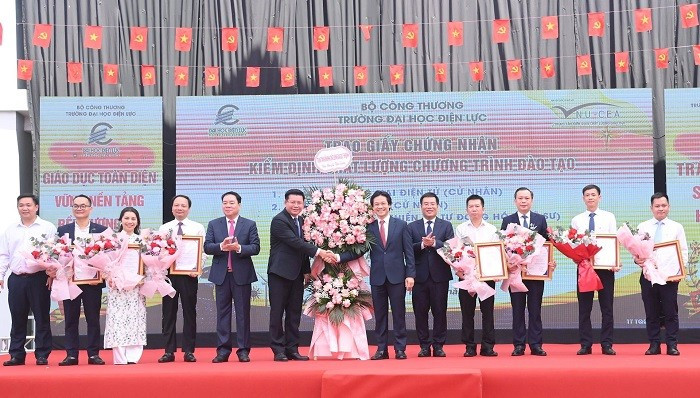
Representatives of the Ministry of Education and School leaders awarded Certificates of Quality Accreditation to 7 training programs.
More than six decades accompanying Vietnam's energy industry
The predecessor was the Practical Engineering School established in 1898. In 2006, the School officially became the University of Electricity according to the decision of the Prime Minister . This is an important historical milestone, affirming the position of a public school in Vietnam specializing in training in electricity and energy.
Over the past six decades of being associated with the history of Vietnam's energy industry, the University has trained hundreds of thousands of engineers, bachelors, masters, and doctors, directly contributing to most of the country's key energy projects: from Hoa Binh, Son La, and Lai Chau hydropower plants to the North-South 500kV power grid; from gas-fired and coal-fired power projects to wind and solar power projects across the country. Wherever there are energy projects, there are the marks of generations of engineers and staff trained from the University of Electricity.
With the current training scale of about 25,000 students, it shows the attraction as well as the growing role of the School in providing human resources for the energy industry. About 70% of the human resources of the Vietnamese electricity industry - from Vietnam Electricity Group (EVN), Vietnam National Coal - Mineral Industries Group (TKV) to FDI and private enterprises in the energy sector have all grown up from EPU.
From operation engineers, dispatchers to management teams, the mark of EPU students is present throughout energy projects, clearly demonstrating the University's enduring role in the development of the national electricity and energy sector.
Mission in the context of energy transition
In the context of Vietnam's commitment to achieving carbon neutrality by 2050, there is an urgent need for high-quality human resources, not only in the traditional electricity sector but also in renewable energy, LNG, hydrogen, storage, nuclear power, industrial cybersecurity and competitive electricity markets.
The Ministry of Industry and Trade has assigned the University of Electricity the mission of becoming the main training institution supplying human resources for the energy transition process. This is both a belief and a great political and historical responsibility.
The School's training ecosystem is comprehensively and seamlessly designed from bachelor's, engineer's to master's and doctoral levels, covering most key areas of the energy industry.
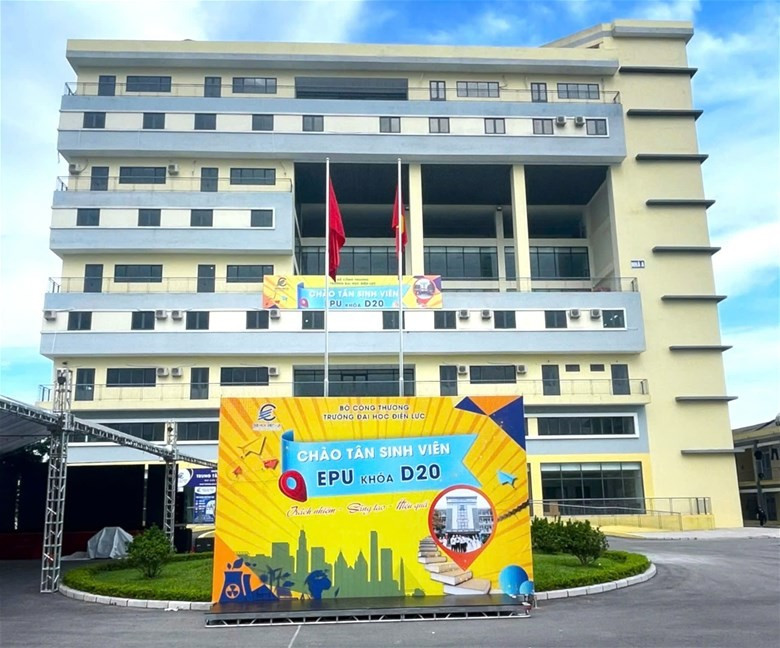
A special feature in EPU’s training ecosystem is the Nuclear Power major. Previously, the School trained the first courses of nuclear power engineers to prepare for the national nuclear power development strategy. Currently, according to the assigned tasks, EPU continues its mission of training nuclear power engineers and experts to ensure human resources for when Vietnam restarts this program.
The school is building a 3-phase training roadmap, from integrating basic courses on nuclear physics, radiation safety, reactor simulation, and nuclear power plant automation as well as integrating nuclear power plant operations into the national grid. This is a long-term step, proactively providing human resources for this particularly sensitive and key field.
In parallel, EPU also pioneered the opening of the Artificial Intelligence (AI) major with two new majors: Artificial Intelligence in Energy and Artificial Intelligence in Automation. This orientation is associated with the high-tech trend, applying AI to smart energy systems, load forecasting, grid operation, automatic control and digital electricity market management. Thereby, the University contributes to bringing Vietnam up to speed with the trend of green, clean and modern energy.
In addition to training, EPU also promotes scientific research and technology transfer. Key directions include smart grids, renewable energy integration, storage technology, LNG electricity, green hydrogen, ammonia, nuclear power safety, industrial cybersecurity and digital electricity markets. Many of the University's research projects have been applied to EVN, PVN, TKV and businesses, helping to improve efficiency, save costs and increase safety for the national power system.
This is a clear demonstration of the close relationship between lecture halls - laboratories - businesses in training and research at the School.
Striving to become the leading applied research university in the energy field in Vietnam
To successfully implement Resolution No. 70-NQ/TW dated August 20, 2025 of the Politburo on ensuring national energy security to 2030, vision to 2045 and aspiration for Vietnam's development to 2045, the University of Electricity has identified five major strategic orientations:
Firstly, to become a leading applied research university in the field of energy in Vietnam, integrating internationally; (2) Promoting scientific research and technology transfer focusing on clean, modern and safe energy; (3) Developing high-quality human resources for new fields, especially nuclear power, artificial intelligence and renewable energy; (4) Expanding international cooperation, participating deeply in the global research network; and promoting the leadership role of the Party Committee of the University, (5) Ensuring a solid political orientation in all training, research and cooperation activities.
According to the school's leaders, in order for EPU to maximize its pivotal role, there needs to be synchronous mechanisms and policies from the State, ministries, branches and enterprises. First of all, it is necessary to build a strategic human resource ordering mechanism linked to the specific needs of EVN, PVN, TKV and energy enterprises. Next, it is necessary to make key investments to form modern research centers and laboratories at the school, especially in the fields of nuclear power, AI, hydrogen, storage and digital energy security.
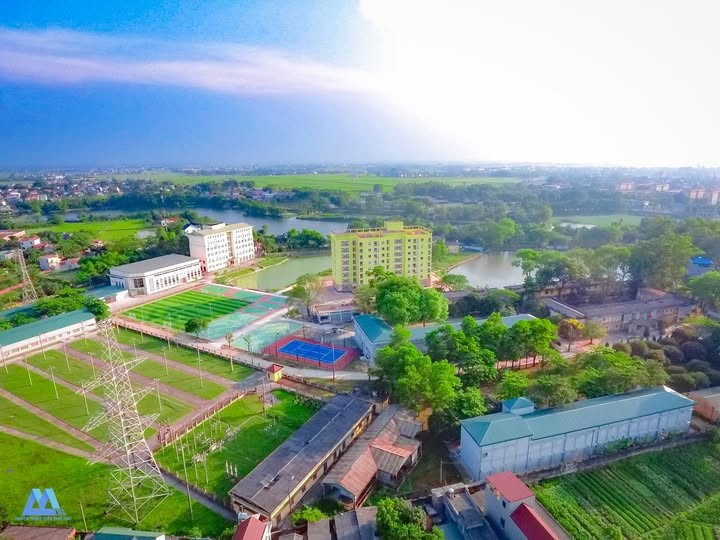
Along with that are scholarship policies, special incentives to attract excellent students and talents, as well as assigning EPU to preside over scientific topics and national tasks on energy security. International public-private cooperation will be the key to forming the model of "University - Research Institute - Enterprise" , ensuring training is linked to practice and new development requirements.
Throughout its journey of formation and development, the University of Electricity has proven its position as a leading center for training, research and technology transfer in the field of energy.
With its glorious tradition, strong political will and aspiration for innovation, the School will continue to promote its pioneering role, accompanying the entire political system, contributing to Vietnam's rapid and sustainable development, achieving the target of double-digit growth and soon becoming a developed, high-income country by 2045.
Source: https://giaoducthoidai.vn/epu-dia-chi-dao-tao-nhan-luc-nang-luong-chu-luc-cua-quoc-gia-post750378.html



![[Photo] Unique architecture of the deepest metro station in France](https://vphoto.vietnam.vn/thumb/1200x675/vietnam/resource/IMAGE/2025/11/14/1763107592365_ga-sau-nhat-nuoc-phap-duy-1-6403-jpg.webp)

![[Photo] Unique art of painting Tuong masks](https://vphoto.vietnam.vn/thumb/1200x675/vietnam/resource/IMAGE/2025/11/14/1763094089301_ndo_br_1-jpg.webp)




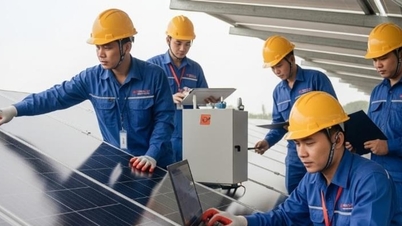





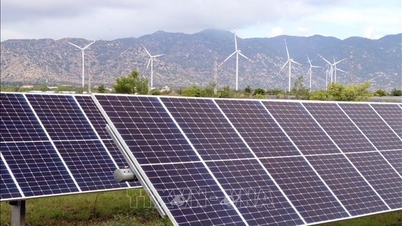

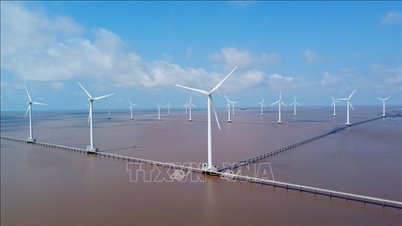
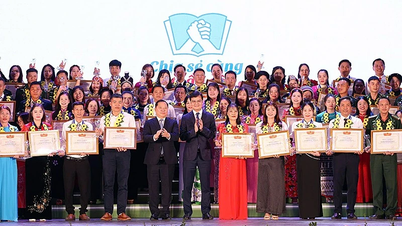

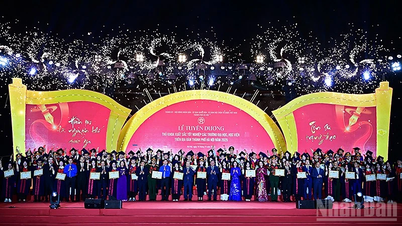
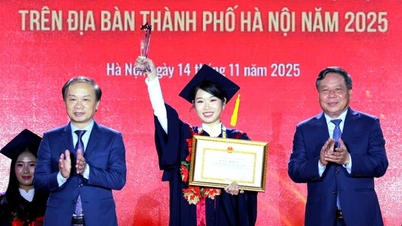

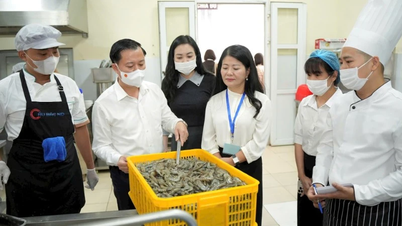

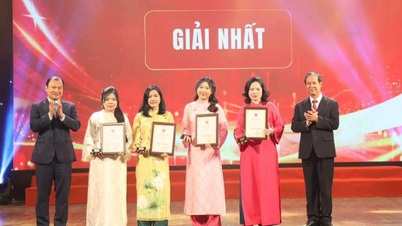




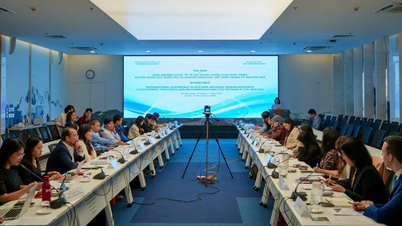
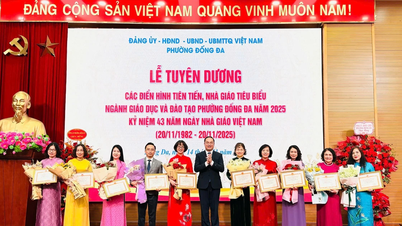

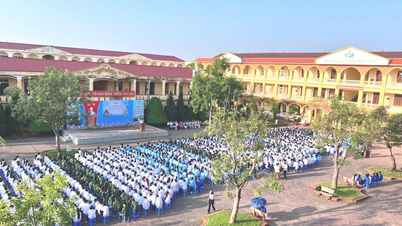

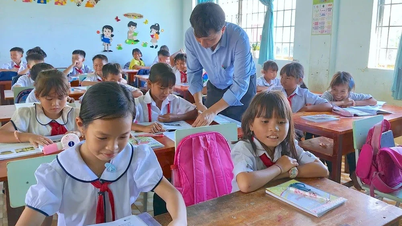
![[Photo] Special class in Tra Linh](https://vphoto.vietnam.vn/thumb/1200x675/vietnam/resource/IMAGE/2025/11/14/1763078485441_ndo_br_lop-hoc-7-jpg.webp)












































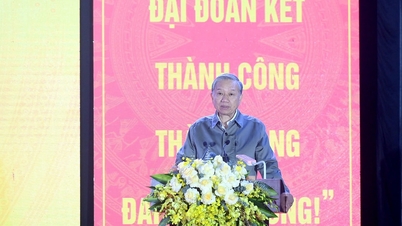



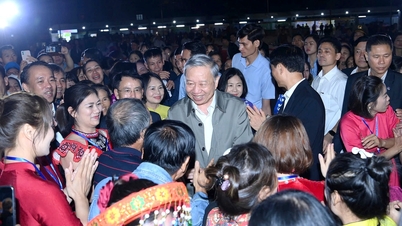
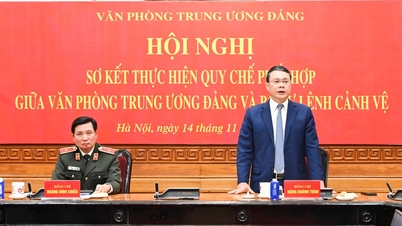




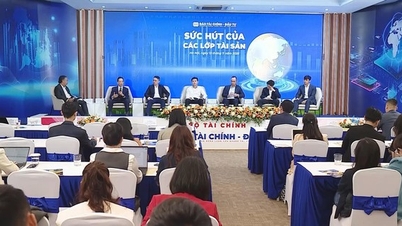

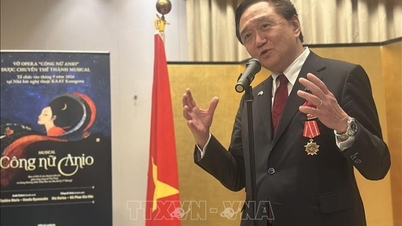

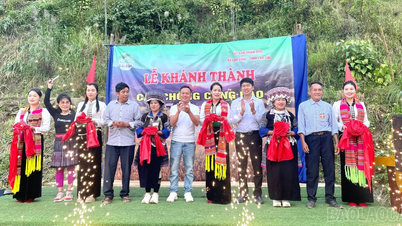

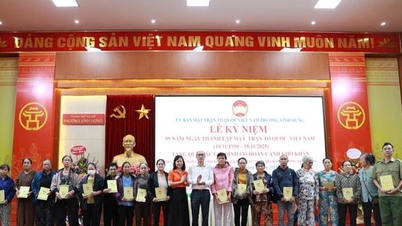











Comment (0)